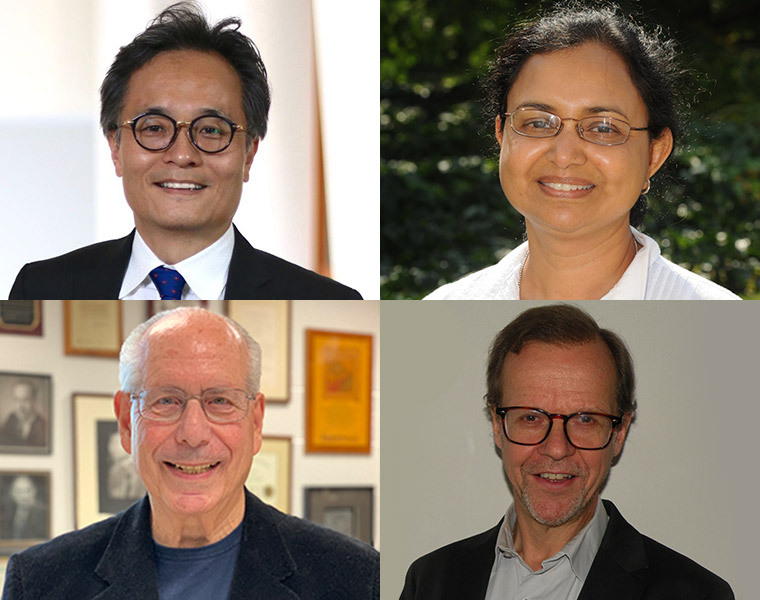At Case Western Reserve University, faculty, staff and students are driven to create change through their work in creative and inspiring ways. During Innovation Week, the institution has celebrated the spirit our faculty, staff and students bring to their research and other scholarly pursuits.
In addition to a number of other campuswide recognitions, the week’s events included the celebration of a new group of Faculty Distinguished Research Award honorees: Arnold I. Caplan, Suchitra Nelson, Erkki Somersalo and Youngjin Yoo.
Though the subject and nature of their work differs, they share a common trait: Their research and creative projects have a reputation of excellence both nationally and internationally. Established in 2013, the Faculty Distinguished Research Award is among the university’s most significant distinctions.
While the award is historically given during the Research ShowCASE in the spring, this year’s awardees were honored during the opening event at Innovation Week.
Get to know this year’s awardees.
Arnold I. Caplan
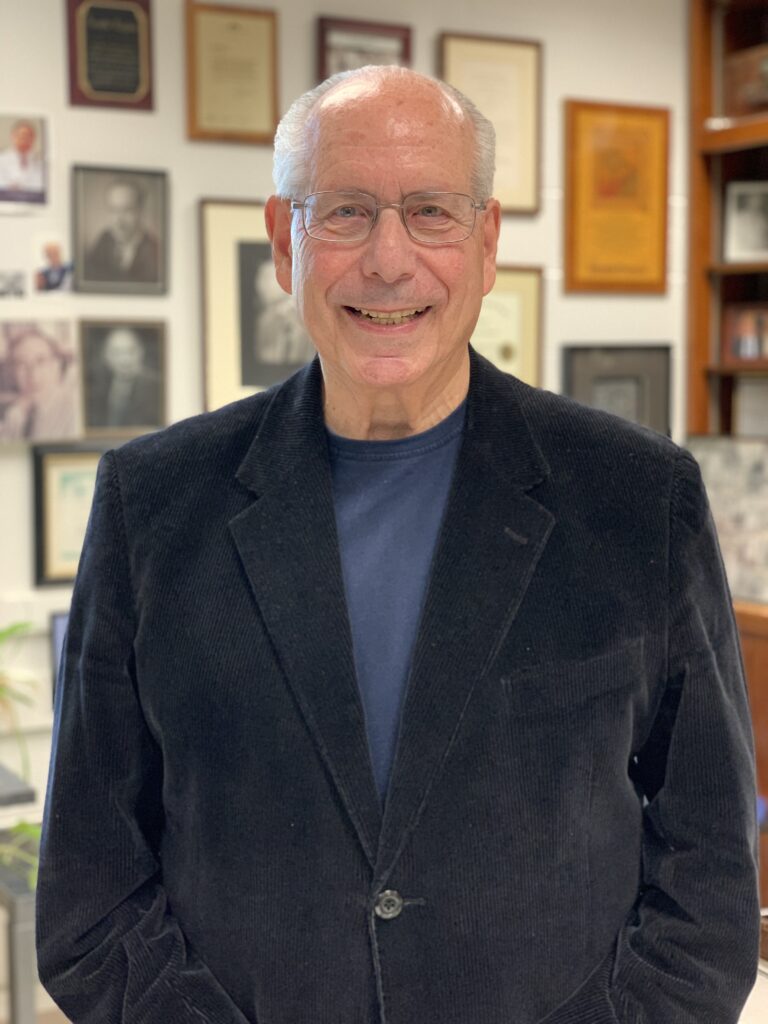
Professor, Department of Biology
Arnold I. Caplan’s work spans six decades across several subdisciplines of science and medicine, with 52 of those years spent as an integral part of the Case Western Reserve Department of Biology. As a widely recognized international leader in stem cell biology and regenerative medicine research, his work transcends the university’s classrooms and labs.
In addition to serving as a faculty member in the College of Arts and Sciences, Caplan has long held joint appointments at the School of Medicine and Case School of Engineering, and is founder and director of the university’s Skeletal Research Center, which he established in 1986. In addition to being awarded several lifetime achievements awards by international organizations, he has been published in more than 490 publications for his discovery of an hMSC-based technology. He also holds 24 patents in regenerative medicine.
“Innovation in basic science is the creative coupling of known or experimentally deduced facts to provide a new direction to understand the physical or biological environment or progression,” Caplan said. “This unique joining is the dream and joy of scientists and is the core of why I have been in this field for 60 years.”
Serving as the principal investigator of several multicentered grants from the Natural Institutes of Health, Caplan continuously receives support from both national and private not-for-profit funding sources that lead to educational and institutional progress.
He’s either directly or indirectly brought the university $50-$100 million of support for both research and student fellowships (training grants).
His newest project involves a $6.1 million grant to be part of a multi-investigator, multi-institutional NIH (National Institute of Biomedical Imaging and Bioengineering) initiative to perfect the manufacturing of engineered tissues using tissue-engineered medical products, which have the potential to restore form, function and appearance to patients who suffer from trauma, disease or congenital defects that are otherwise untreatable by either pharmaceuticals or biopharmaceuticals.
This life-changing work does not go unnoticed outside the university.
“Dr. Caplan has been a great advocate for galvanizing groups to effectively lobby for scientific investment in our field,” said Kenneth R. Zaslav, director of the Center for Regenerative Medicine at Lenox Hill Hospital and professor of orthopedic surgery at Hofstra University. “Arnold’s a stellar representative for Case Western Reserve University throughout the medical academic space.”
Suchitra Nelson
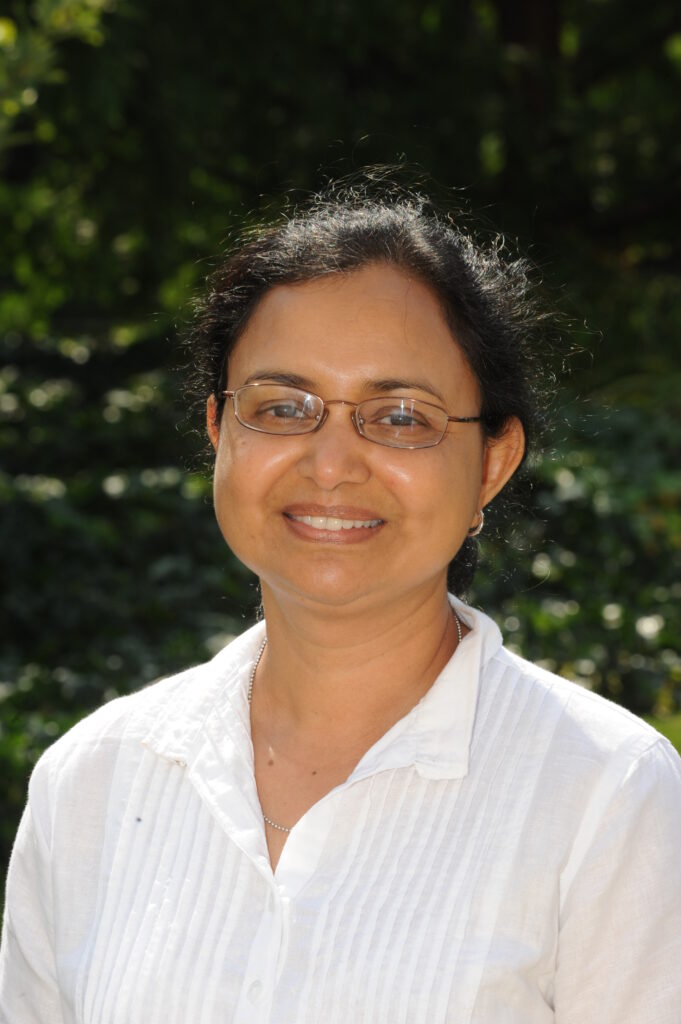
Associate Dean of Clinical and Translational Research, School of Dental Medicine
Well recognized in the field of oral health disparities research, School of Dental Medicine Associate Dean of Clinical and Translational Research Suchitra Nelson’s contributions have improved the oral health of communities in Northeast Ohio, specifically low-income minorities, special needs children and community-living older adults. Nelson’s community-based clinical trials provide interventions at the child/adult, family, provider and practice levels with the goal of reducing disparities in untreated cavities.
“Dr. Nelson is a productive scholar who has served Case Western Reserve with excellence making important contributions to scientific literature and to public health and statistics,” said Professor Emeritus Peter Milgrom of the University of Washington in his nomination.
Nelson also has been awarded several grants from NIH’s National Institute of Dental and Craniofacial Research, including the first T32 grant for the dental school, as well as from Patient-Centered Outcomes Research Institute, Health Resources and Services Administration and other non-federal sponsors. Her grants have totaled more than $20 million, including continual funding from external sponsors for her research since 2004.
In 2007, Nelson was the first Case Western Reserve University faculty member to receive the Presidential Early Career Award for Scientists and Engineers from the White House Office of Science and Technology. More recently, in 2016, Nelson was named a Health Care Hero by Crain’s Cleveland Business for her work and dedication to bettering the lives of the Northeast Ohio community.
She is leading several large-scale clinical trials in the community—one trial testing non-surgical dental treatments for older adults could become a standard of care in the future. All of the clinical trials have the potential for significant public health impact.
Through the project, titled “Multi-Level Interventions to Reduce Oral Health Disparities Among Adults in Primary Care Settings,” Nelson and collaborators from MetroHealth Systems aim to work with primary care physicians and nurse practitioners to help them identify oral health issues and educate their patients about the connection between oral and systemic health.
“I am extremely honored to receive this award,” said Nelson. “It highlights our clinical trials taking place in the community, helping children and older adults, as well as our amazing research team implementing these projects.”
Erkki Somersalo
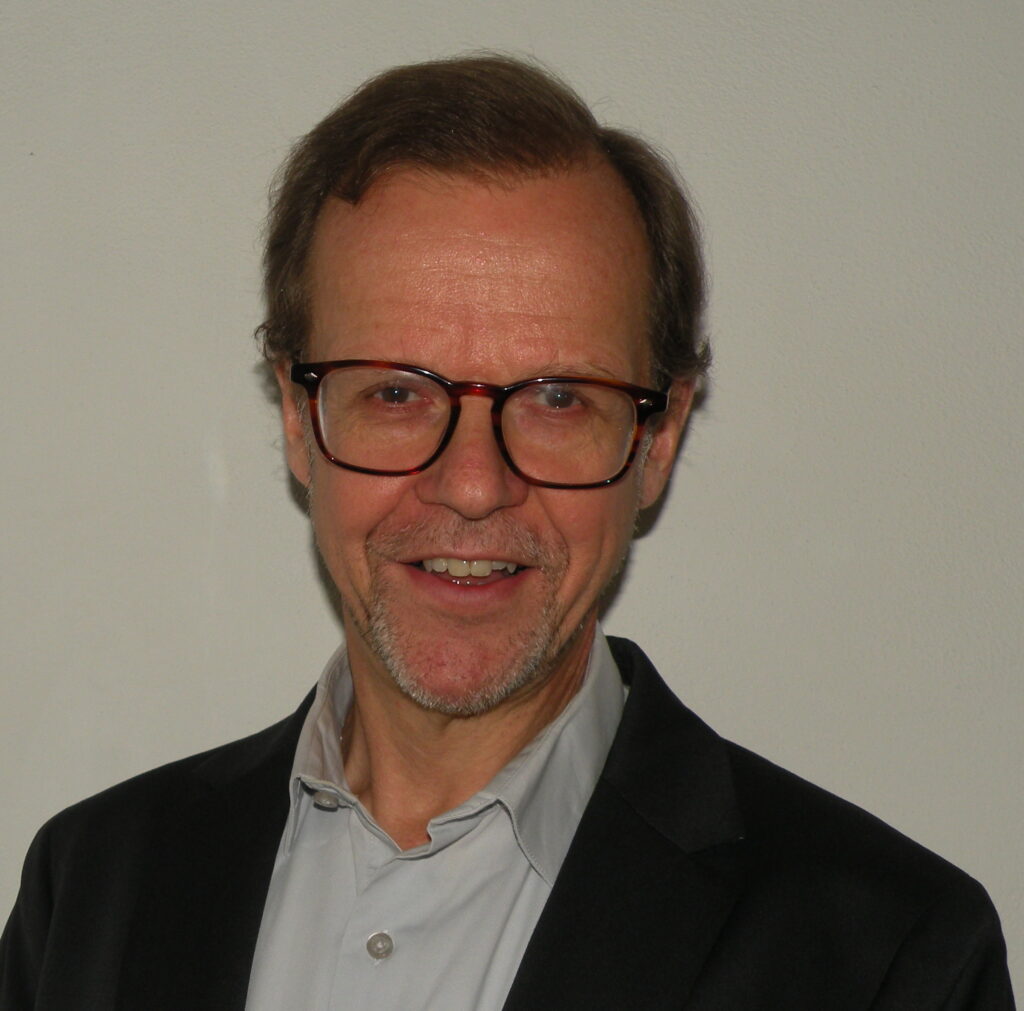
Professor, Department of Mathematics, Applied Mathematics and Statistics
Erkki Somersalo’s contributions to the mathematics community have spanned decades and positioned him as an intellectual leader in his field. A part of the Case Western Reserve University faculty since 2008, his work focuses on computational inverse problems—with a particular emphasis on biological complex multi-scale systems and medical imaging—and discretization analysis, modeling, numerical computations and statistics to better understand the human body.
Over the past 38 years, Somersalo has had an enormous influence on his field through more than 175 publications, which have been cited 12,361 times as of January 2022. He is considered to be a thought leader both in his early work pursuing fundamental solvability questions of inverse problems, the development of Bayesian methods in inverse problems and his more recent work addressing questions in epidemic dynamics, experimental science and brain studies.
“There are many other excellent researchers working in inverse problems, but none of them quite matches Erkki in depth, creativity and breadth of knowledge,” said Margaret Cheney, the Albert C. Yates endowment chair and professor of mathematics at Colorado State University, who collaborated with Somersalo early in his career. “Erkki is really the only researcher in the field who is a master not only of all the related partial differential equation theory and functional analysis, but also of the physics, physiology, engineering, numerical methods, numerical analysis and the statistical techniques.”
In addition to his research, Somersalo is known for his excellence in the classroom. From his work modernizing curriculum, to his supervision of doctoral students, Somersalo takes very seriously the responsibility of developing the next generation of scientists—a skill that earned him the John S. Diekhoff Award for Graduate Teaching in 2012.
Somersalo also has led his field as the vice director of the Academy of Finland Centre of Excellence on Inverse Problems, and is a founding member of the Finnish Inverse Problems Society which has become a model organization for several national and international societies in the field.
“I am deeply honored by this recognition,” said Somersalo. “Research has been—and continues to be—my passion. Being an applied mathematician defines the way I see the world, so being honored for my work is not only a professional recognition but also a very personal one. I am grateful for all my collaborators, and everyone who made this recognition possible.”
Youngjin Yoo
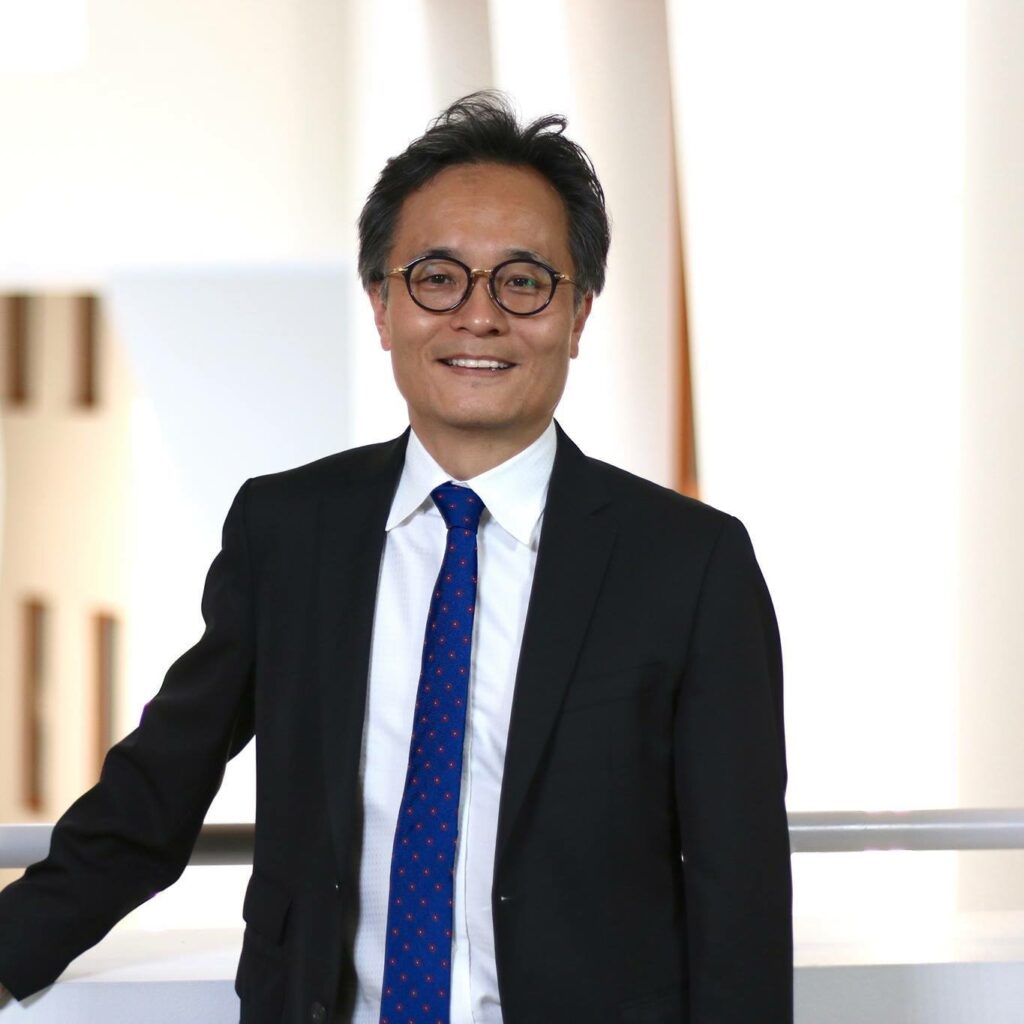
Elizabeth M. and William C. Treuhaft Professorship in Entrepreneurship, Faculty Director of xLab, Professor of Design and Innovation
Youngjin Yoo has emerged as one of the leading global scholars in digital innovation and has made significant intellectual contributions to the role of technology in organizations.
Yoo joined Case Western Reserve University as a faculty member in 1997 and taught for 10 years before leaving for Temple University in 2006. He returned to Case Western Reserve in 2016 and, not long after, became the founding faculty director of xLab at Weatherhead School of Management.
“Through xLab, he is leading a research and development program in the area of privacy-preserving personal analytics, which is likely to be a key battleground of the next generation of digital innovations,” said Weatherhead School Professor of Design and Innovation Kalle Lyytinen.
Yoo has published 165 papers, co-authored four books and received more than 35 research grants. Since 1995, he has been invited to give more than 130 presentations across the world.
The relevance of Yoo’s research on digital innovation has been noted by his peers.
“Professor Yoo’s body of work is critically important as so many organizational activities, at both the micro and macro scales, are becoming increasingly integrated with digital devices, digital data, and digital infrastructures, and the implications are unprecedented and consequential,” said Wanda J. Orlikowski, the Alfred P. Sloan Professor of Information Technologies and Organization Studies at the Massachusetts Institute of Technology.
While Yoo’s research focus is digital innovation, his work expands naturally into many related fields.
According to McGill University Professor Samer Faraj: “It is difficult to think of any other scholar with such a generative set of ideas that have deeply impacted not just the IS [information systems] field but multiple fields.”
He added that Yoo’s research contribution to the world “is not just theoretical, it is highly relevant to practitioners who can draw on this novel understanding of digital innovation to better manage the design of artifacts and the R&D process.”
University of Southern California Professor of Digital Innovation Ann Majchrzak concurred, citing Yoo as “the most interdisciplinary person” she knows.
“Most people are interdisciplinary by working with other disciplines,” she said. “He certainly does that, but most importantly, he does the hard work to bring the other disciplines into his own perspective.”
The reach of Yoo’s work on a global stage is impressive: He was recently named on the 2021 World’s Top 2% Scientists list, which includes the most-cited scientists across the length of their career.

